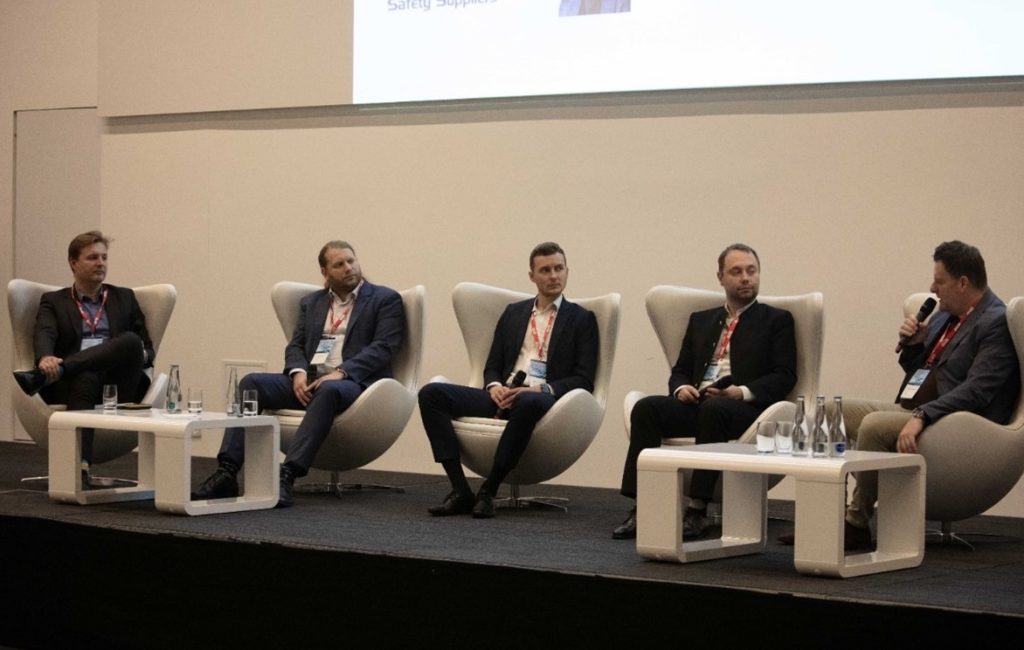PRAGUE – The overall Clean Mobility conference took place on 7th November 2024 as part of the e-SALON fair at the PVA EXPO Prague complex in Letnany where the leading experts in the field of electromobility spoke not only about the successes, but also about the most pressing obstacles which need to be solved on the way to modern electric transport.
The opening remarks were hosted among the other by the Minister of Transport of the Czech Republic, Mr. Martin Kupka and by the conference organizer, Mr. Marian Nic from EIT Urban Mobility. The final afternoon block was dedicated to the challenges in the battery economy, the academic dimension of the panel was secured by the Chairman of the Czech Battery Cluster (CBC), Assoc. Prof. Tomas Kazda from Brno University of Technology, and moderated by the Executive Manager of the CBC, Mr. Jan Vejbor.

Source: EIT Urban Mobility.
Within the battery block five experts from different parts of Europe and industry sectors discussed and agreed that thanks to the increase in production (price aspect) and research and development (performance and safety parameters) over the past 15 years many of the previous disadvantages of Li-ion batteries have been eliminated. The current performance of batteries should therefore be at a sufficient level for everyday electromobility usage, especially in combination with an extensive charging network across Europe. On the other hand, the persistent perception of electric vehicles as a high safety risk for their immediate surroundings was identified as a major problem in some EU countries. The representative of the Polish Electromobility Association stated that while in Poland this fear, especially on the part of the public, persists, the national Polish fire brigade stands on the side of proven practice and argues that electromobility does not pose greater safety risks than vehicles with a combustion engine. In contrast, the high level of anxiety about safety around electric vehicles of the Czech fire brigade fuels public concerns in Czechia to such an extent that an example was given where the construction of private charging stations, especially in apartment buildings, is almost impossible now due to concerns between neighbours. This limits the penetration of EVs among private users and lowers the Czech Republic’s ranking in EV adoption compared to the rest of the EU. As stated by the representative of a Dutch producer of firefighting equipment for electric vehicles, many of the risks of electric vehicles can be prevented by their proper use, and in a case any incident developsc, there are instruments by which a battery fire can be stopped in time without causing significant damage to the surroundings and the vehicle. Given the time that the issue of vehicle fires took up from the entire panel on batteries, it can be interpreted that hard data on the benefits of electromobility no longer needs to be discussed, and that issues which are more emotional than rational and data-based are currently being brought to the fore.

